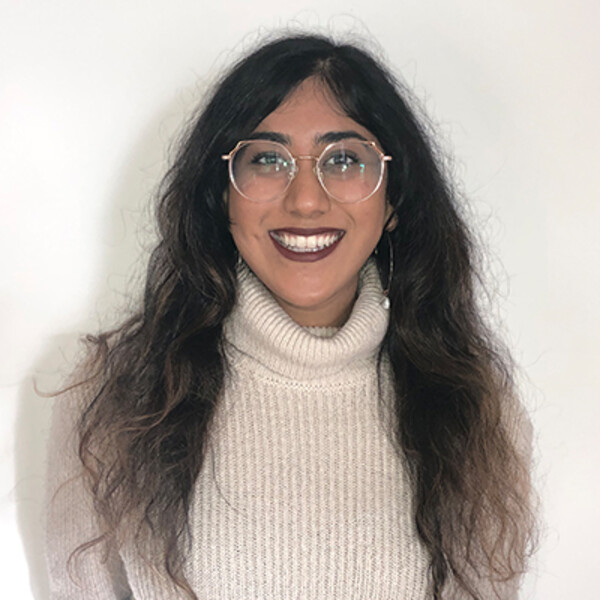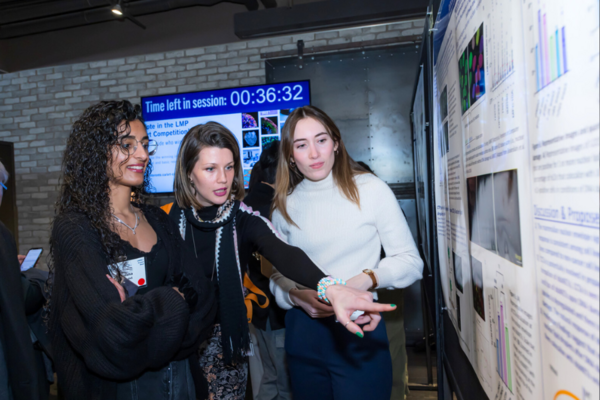LMP graduate students bring science out of the lab and into the high school classroom
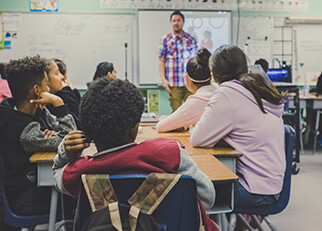
The Committee of Laboratory Medicine and Pathobiology Students (CLAMPS) in the Department of Laboratory Medicine & Pathobiology, runs a high school outreach program, adapting it to online as the COVID-19 pandemic hit.
The program, managed by CLAMPS executives Dorsa Sohaei and Matsya Thulasiram, runs informational sessions for pupils in grade 11 and 12 at ten schools across the Greater Toronto Area.
Volunteer graduate students present their research and give insights to the pupils, such as why they chose to study the sciences and obstacles they faced, as well as sharing their love of research.
“One of the great things about having these high school outreach programs is to demonstrate what graduate studies are,” explains Matsya, a 2nd year PhD candidate in Dr. Alain Dabdoub’s lab. “Many of the pupils have never even heard about graduate studies and that they are an option at university. We’re able to inform them about options and career paths they could have in research that they’ve never been exposed to before. ”
“At that age, most don’t know much about what life at university could be like,” adds Dorsa Sohaei, a 2nd year MSc student in the lab of Dr. Eleftherios Diamandis. “We explain the different pathways to graduate studies and the tangible skills we learn, such as communication, collaboration, and critical thinking. They get to see school isn't just about absorbing information, it’s also about learning and honing these new skills.”
“The focus of this program is to provide insights to young students through lived experiences,” explains Ryan Hiebert, 2nd year MSc student and President of CLAMPS, “The work being done in the high school outreach program is so impactful on young students trying to navigate the world of academia. Being able to share my experiences with students so that they will be better prepared for the challenges they will face in university is truly gratifying. What's so exciting about this program is that it gives students the opportunity to learn about the nuances of university (and beyond) that can't be learned from reading a textbook."
Providing insights for high school pupils that show it’s ok to be unsure
The graduate students explain how they came to study at university and share some of the doubts and fears they had, as well as their successes.
“My university career basically started as a failure in my eyes,” says Sofia Melliou, a 3rd year PhD candidate in the lab of Dr. Phedias Diamandis. “I originally wanted to study biology and be a dietician, but I ended up studying chemistry. It wasn’t what I had planned and I was distraught starting university – what was I going to do? But it was the right choice for me. Ten years later I love my academic career and I wouldn’t have it any other way. It’s really important to show pupils that it’s ok to not know what you want, or for things to not work out as you plan. You can still succeed.”
Although the graduate students are primarily talking about their own educational and research careers, they end up discussing a broad range of issues from finances to how to get into undergraduate studies.
Adapting to a new online world
Previously, groups of graduate students would visit local high schools in Toronto in person. Naturally, with the COVID-19 pandemic, they had to switch to online, which meant giving presentations through Zoom.
“It was hard at first but adapted quickly,” explains Dorsa, “It can still be a bit challenging as the pupils keep their cameras off, so you wonder sometimes if anyone is listening. Once it comes to question time, it just takes one brave kid to ask the first question, then they start flooding in!”. The fact that pupils can ask questions anonymously through the chat helps improve interactions with pupils who would normally be too shy to raise their hand.
The team try to use technology to their advantage, introducing quizzes through apps on their phones to get their audience engaged.
Being online also has advantages in logistics as more schools and graduate students are able to take part due to the reduced time commitment needed, and lack of geographical constraints.
A learning experience for graduate students
It’s not just the high school pupils who benefit from the program.
Graduate students very much enjoy giving back to the local community and helping young people work through some of the same questions and fears they had when they were at school.
“Many of our participants find it’s a great moment of reflection,” notes Matsya, “Thinking about when they were a teenager getting ready to start university and reflecting on what they’ve done and learnt since then is a great opportunity.”
Most of all, they have to be able to communicate their research to a non-scientific community.
I love that idea that one of our presentations could be the moment that sparks an interest in science for a young person and inspires them to pursue research.Sally Moy, 1st year MHSc Translational Research
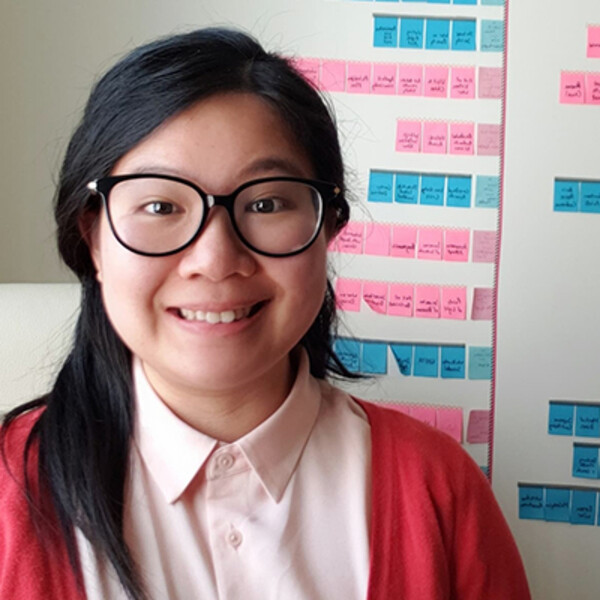
“One of the competencies we're expected to learn as a part of our program is effective communication. It’s essential and a real-life skill that translates into any field, but especially in translational research” comments Sally Moy, a 1st year MHSc in Translational Research student, “This outreach program has been a fantastic opportunity to practice public speaking and to connect with our local community.”
“Effective communication and being able to tailor your presentation to your audience is essential. We understand that most of the pupils don't know the difference between undergraduate and graduate school, so we're really trying to present science in a digestible and easy to understand way for them,” continues Sally.
How to get involved in high school outreach
If you are a graduate student in LMP or a high school interested in taking part in the program, contact Dorsa and Matsya below.
CLAMPS is planning its annual high school outreach event, REACH, for Saturday March 27th.
High school students will get the chance to chat with LMP graduate students, alumni, and faculty at an interactive online event.
They will also participate in at-home hands-on science experiments, see virtual lab tours, and participate in fun group activities throughout the day.
If you are a student, alumni or faculty member and would like to get involved, contact Dorsa and Matsya!
Dorsa Sohaei
Vice-President, External, CLAMPS
dorsa.sohaei@mail.utoronto.ca
Matsya Thulasiram
External Representative, CLAMPS
matsya.thulasiram@mail.utoronto.ca
Read more
Inspiring the next generation of women in STEM: LMP students give their advice: For International Women in STEM day, students in Laboratory Medicine & Pathobiology talk about why they started studying the sciences and what advice they would give to young women interested in science.
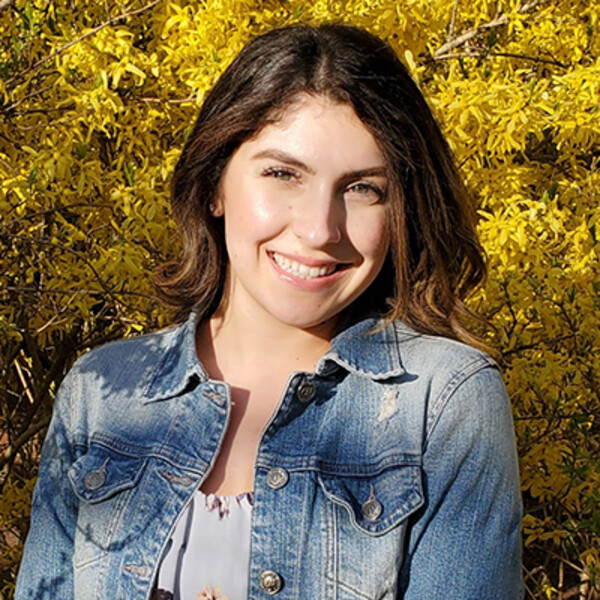
Dorsa Sohaei
